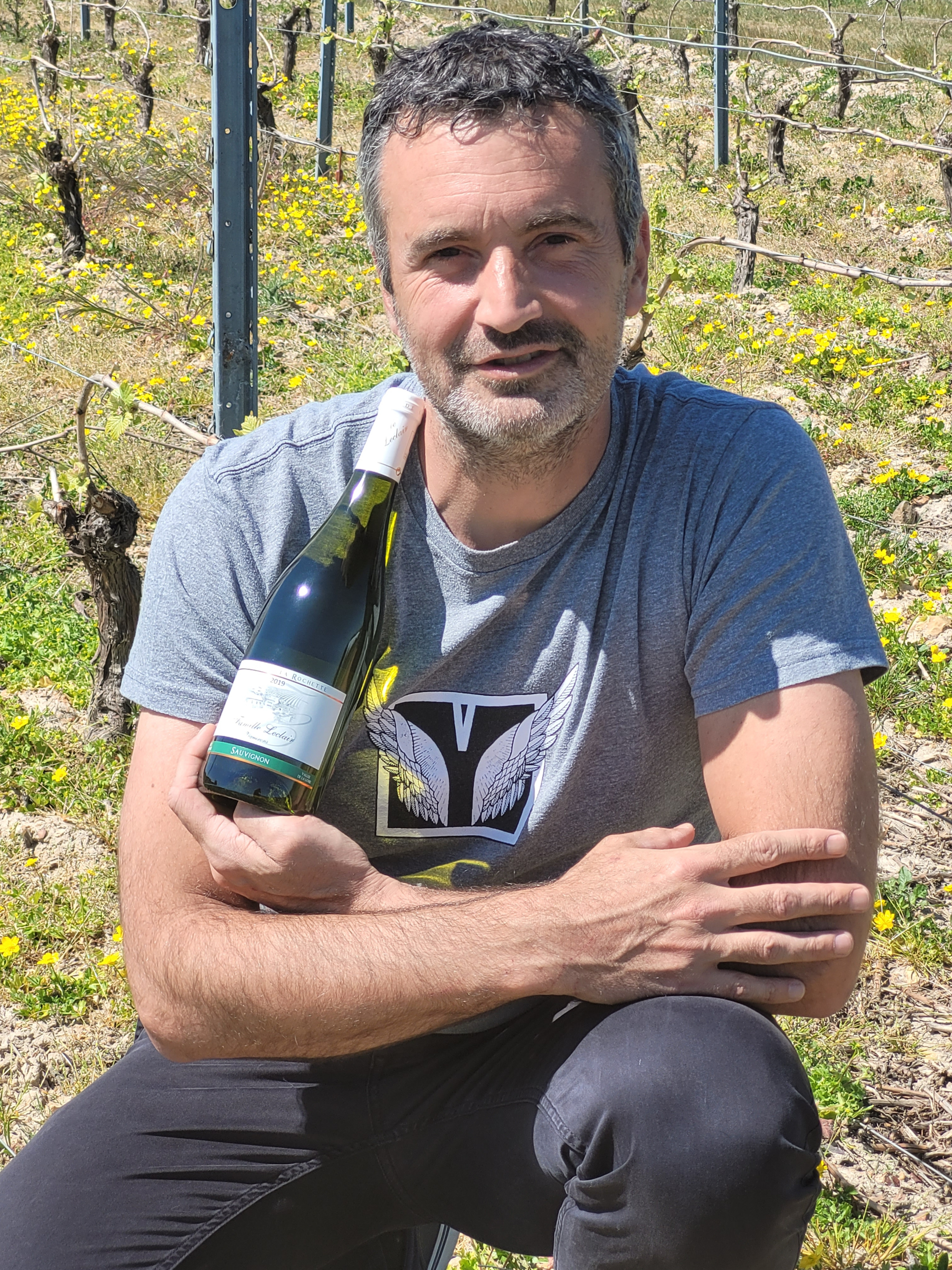Rochette
- Touraine, Loire, France
Domaine de la Rochette has been in Vincent Leclair's family for four generations. Upon taking over the fifty hectares of vines from his father in 2014, Leclair made some changes in the vineyard management. He kept grass in the rows and stopped using insecticides, instead opting for sexual confusion horomones. He invested in new tractors that are much more precise in their applications and it allowed him to reduce his treatments by 50%. Although he likes the idea of organic farming, it's very challenging because Touraine gets a lot of rain and there is mildew pressure. For his plots in the Chenonceaux vineyard, he is organic. Treatments for mildew in the other vineyards are done as sparingly as possible and the winery is certified sustainable with HVE3.
The domaine is located in Pouillé, a small wine village on the Cher River in the heart of the Loire Valley. The vineyards are located on the slopes of the Cher river and benefit from a semi-continental climate on multiple terroirs and “perruche” (made of clay with flint, silica and gravel). He also has some vineyards on the plateau which has more clay. Most of the parcels, especially for the Sauvignon, are in the “première Côtes” with a beautiful exposure and and rather steep slopes, perfect for natural drainage.
Leclair only works with fruit from his own vineyards. He makes an assortment of wines ranging from Gamay, Pinot Noir, Pineau d'Aunis and sparking Chenin Blanc. The majority of his vines are Sauvignon Blanc, representing twenty of the fifty hectares. Domaine de la Rochette was also one of the first twelve wineries making wine in the new Chenonceaux appellation, established in 2011. In the cellar, Leclair works with a pneumatic press and temperature controlled stainless steel tanks, allowing him to make transparent wines that showcase the terroir.
When we met with Leclair in 2018, we had the chance to discuss the the reason that Touraine Sauvignon is such a different expression compared to Sancerre, 85 miles east of Pouillé. First, of course, the soil is different, with Kimmeridgian limestone and clay soils in Sancerre. The climate is also different, Touraine tends to be warmer by a few degrees. Yields are smaller in Touraine. The legal limit is 50hl/ha in Touraine compared to 65hl/ha in Sancerre. And Leclair said that they tend to harvest later in Touraine compared to Sancerre where they do not want to take the risk of bad weather with a later harvest. Sauvignon from Touraine has softer edges, less aggressive aromatics, ample fruit that is balanced with minerality. The Touraine Sauvignon from Rochette is a wonderful example of the best that Touraine has to offer and the Chenonceaux is not to be missed!

